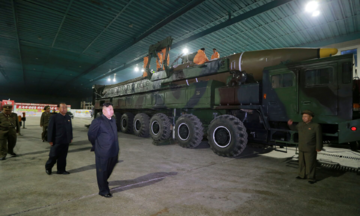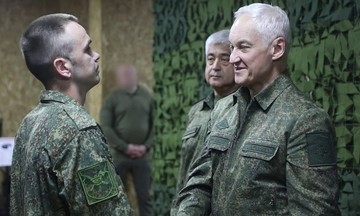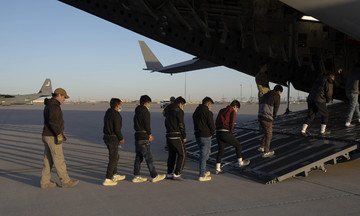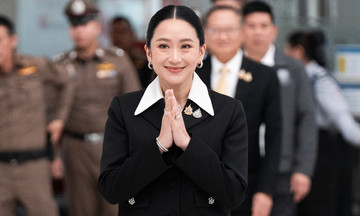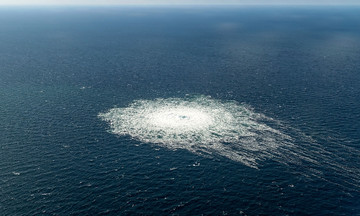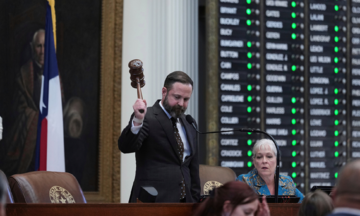The 345 Park Avenue building in New York City's bustling Midtown, where a gunman killed 4 people on 28/7, was considered a security fortress. Concrete planters lined the sidewalks. Security guards staffed the lobby. Cameras monitored every movement. Visitors had to register in advance and pass through security to reach the elevators.
Yet, these stringent security measures were breached when 27-year-old Shane Tamura walked in openly carrying a rifle.
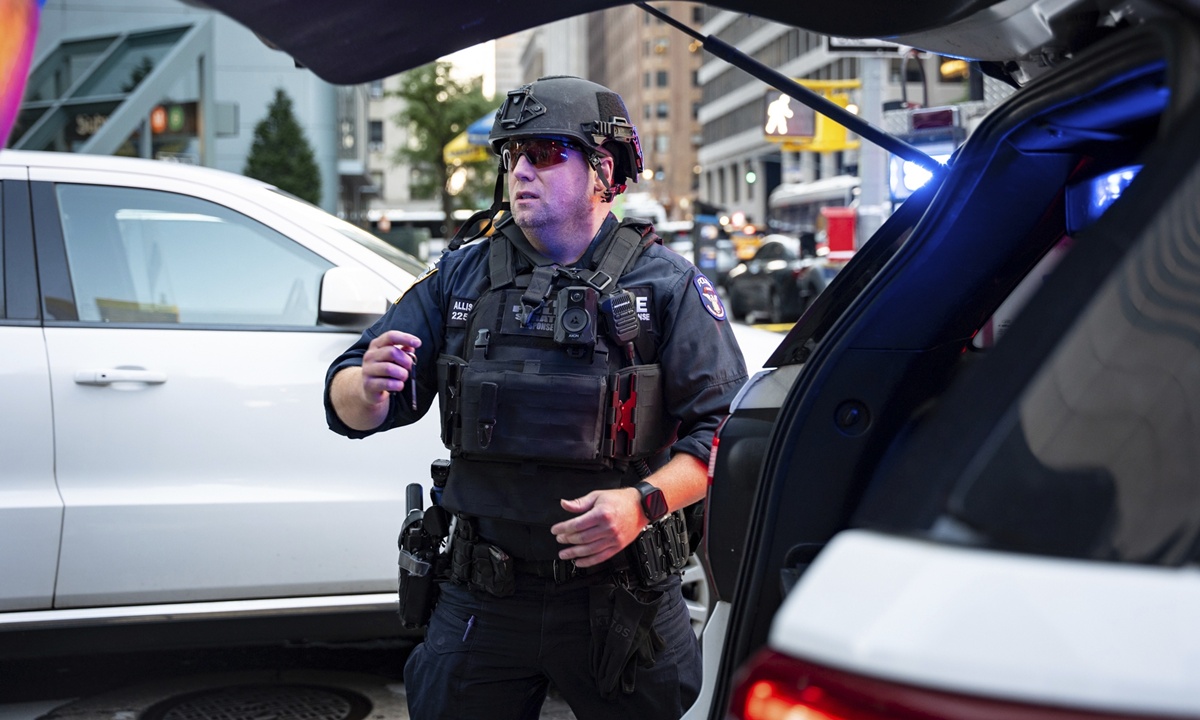 |
Police near the scene of the shooting at 345 Park Avenue, Midtown Manhattan, New York, on 28/7. Photo: AP |
Police near the scene of the shooting at 345 Park Avenue, Midtown Manhattan, New York, on 28/7. Photo: AP
345 Park Avenue houses major organizations like the National Football League (NFL), the alternative asset management firm Blackstone, the auditing firm KPMG, and the property management company Rudin Management, according to Tim Gallagher, a former Federal Bureau of Investigation (FBI) special agent and current co-director of security and threat mitigation at the investigative firm Nardello & Co.
The building's management had seemingly implemented all the right security protocols, Gallagher assessed. They employed at least one or two security guards at the reception desk and a New York Police Department (NYPD) officer in the lobby.
The building utilized an advanced automated surveillance system. Visitors had to pass through a security checkpoint before accessing the elevators.
CNN reporter Coy Wire, who had visited the NFL offices within the building numerous times, noted that security personnel routinely checked visitors before allowing them through security and up to the offices. Wire considered the building "completely secure."
Such multi-layered security programs are considered best practice, Gallagher noted. "The security is very tight," he said.
But all precautions failed when Tamura entered the lobby with a rifle, undetected and unchallenged. The first line of defense, the NYPD officer on duty, was neutralized when Tamura opened fire.
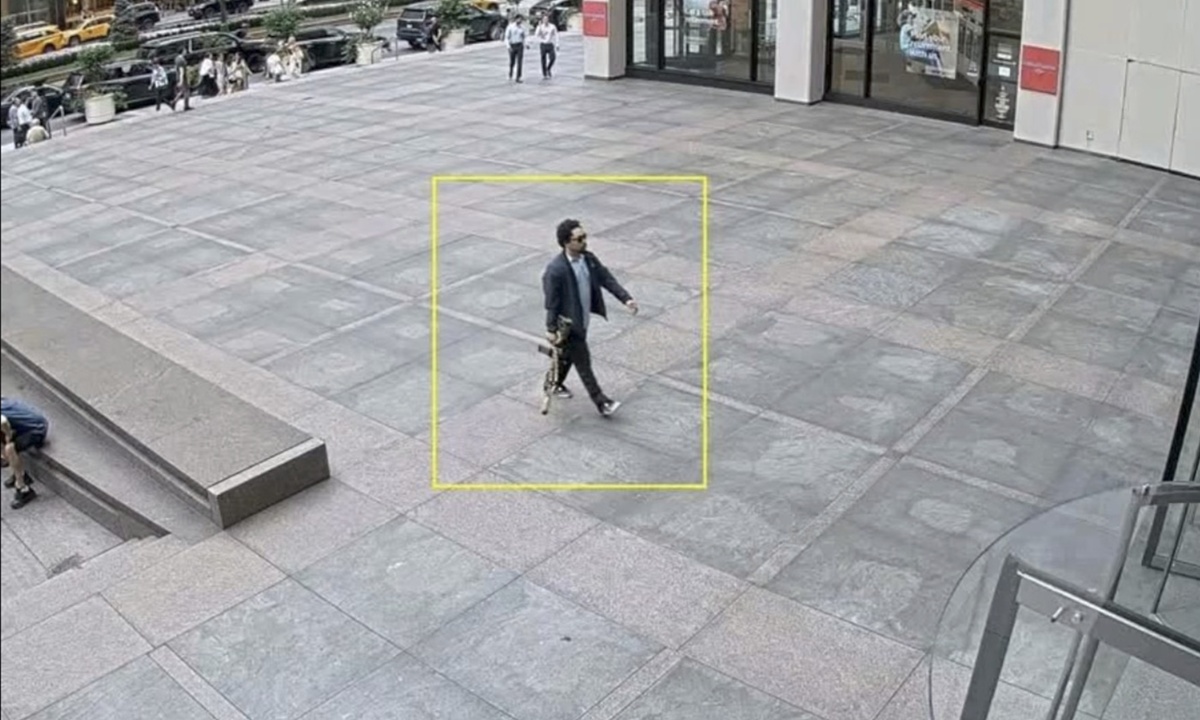 |
Surveillance footage shows the suspect carrying a rifle as he enters the building in Midtown Manhattan. Photo: Reuters |
Surveillance footage shows the suspect carrying a rifle as he enters the building in Midtown Manhattan. Photo: Reuters
Tamura proceeded to shoot an unarmed security guard and Blackstone's chief executive officer (CEO), who happened to be in the lobby.
Witnesses stated that Tamura shot through the security barrier, accessed an elevator, and went to the 33rd floor. There, he shot and killed one person, injured several others, and then took his own life.
The attack highlighted the vulnerability of even a heavily secured office building to a determined assailant, according to security experts. "If you're up against an attacker willing to trade their life for yours, it's difficult to defend yourself," Gallagher explained.
Experts across the US were shocked by the potential for such an event occurring in their own workplaces, prompting companies to urgently review security procedures.
Security expert Brian Stephen reported receiving inquiries from clients, including multinational corporations and property owners, after the shooting. "They're all asking if they need to change their thinking about security measures after what just happened," he said.
The answer is complex, according to Stephen. Securing office buildings in dense urban environments like Manhattan presents unique challenges.
Unlike suburban office parks or corporate campuses where unauthorized individuals can be intercepted at distant security checkpoints, city-based companies can only restrict lobby access to a certain extent.
Many companies have implemented online threat monitoring, conducted annual safety training for employees, and encouraged reporting suspicious activity. But once a perpetrator neutralizes lobby security, as occurred on 28/7, access to upper floors becomes easier.
Some companies have begun installing AI-powered video surveillance software to detect individuals carrying weapons. Such systems can trigger building lockdowns or allow staff to disable elevators, Stephens explained.
Police deployed to the scene of the shooting in Midtown Manhattan. Video: X/The Informant
"The idea is that even if an attacker gets inside, they won't get far within the tower," Stephens stated. However, this technology is expensive and still developing. "It's certainly not widespread yet," he added.
Security experts emphasize that employees play a crucial role in preventing workplace attacks. Tamura's shooting demonstrated how building occupants quickly implemented self-preservation procedures learned in active shooter training.
Many immediately adopted the "run, hide, fight" response upon learning of the shooting. Security experts noted that barricading doors or hiding can be effective in deterring a gunman in time-sensitive situations.
According to New York City Mayor Eric Adams, 345 Park Avenue has "bullet-resistant safe rooms within restrooms" and had conducted active shooter drills. He believes these measures may have saved lives.
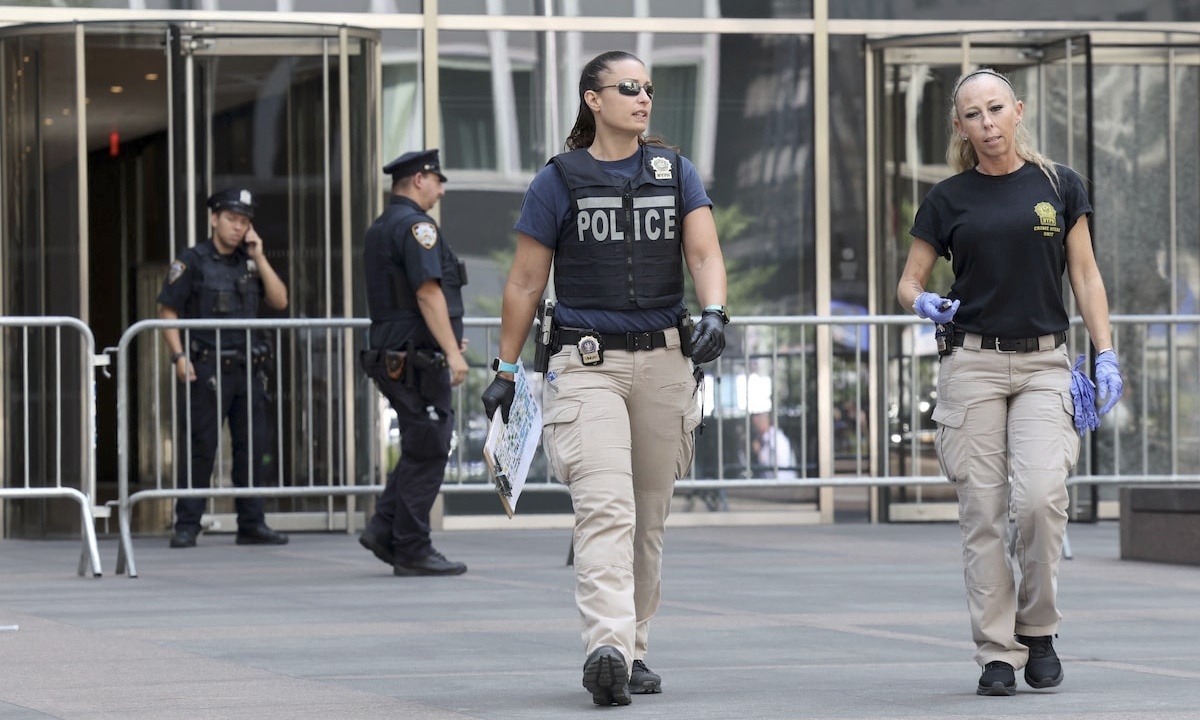 |
New York Police Department Crime Scene Unit investigators at the scene of the 345 Park Avenue shooting, Midtown Manhattan, on 29/7. Photo: Reuters |
New York Police Department Crime Scene Unit investigators at the scene of the 345 Park Avenue shooting, Midtown Manhattan, on 29/7. Photo: Reuters
Dale Buckner, CEO of Global Guardian, a security firm with clients in the building, stated he had visited 345 Park Avenue numerous times and had seen the lobby security doors in operation. It remains unclear how easily the gunman bypassed security.
Buckner stated, "The bottom line is we need to make this harder, and there has to be a way to completely lock down the lobby of the building to limit the attacker's mobility when these things happen."
He suggested an additional solution: lobby security personnel should be stationed behind bulletproof glass, similar to some US embassies in volatile countries, with added layers of protection to isolate attackers more effectively.
"It sounds extreme, but I think it's inevitable," Buckner emphasized.
Vu Hoang (According to WSJ, AFP, Reuters)



